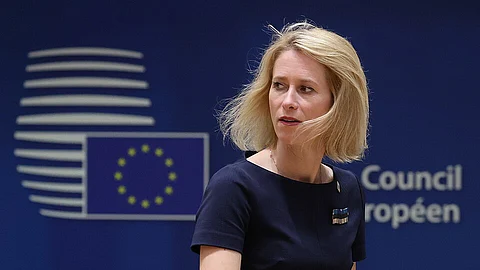

Kaja Kallas, the European Union’s foreign policy chief, stated on Friday that talks between member states on sending troops to Ukraine to enforce a ceasefire have not succeeded.
When asked by reporters whether any progress had been made at Thursday’s summit in Brussels, Kallas replied, "No. Different Member States have different opinions, and discussions are still ongoing."
On Thursday, reports emerged that only six countries—five of which were identified as the UK, France, and the Baltic States—had committed to sending troops to Ukraine.
The proposal to deploy European troops to Ukraine has been under discussion since last year, but it has gained traction since U.S. President Donald Trump assumed office in January. Dubbed the “Coalition of the Willing,” the initiative has drawn controversy due to its name, which is the same as the U.S.-led alliance that invaded Iraq in 2003.
Last week, Ukrainian President Volodymyr Zelensky met with French and British military leaders and claimed that agreements on the deployment of European troops to Ukraine were close. The British Ministry of Defence stated that talks were ongoing regarding the size and composition of what they have described as a 'reassurance force' to be deployed to Ukraine.
In February, UK Prime Minister Keir Starmer and French President Emmanuel Macron visited the White House to persuade President Trump to support the proposal and to provide a "backstop" for the coalition—meaning the U.S. would intervene if European troops came under attack. However, Trump has refused to offer such assurances and has largely excluded European nations from ongoing negotiations with Russia.
The viability of continuing to pursue this proposal remains in question, as Russia has repeatedly stated it will never agree to the deployment of foreign troops in Ukraine and would treat them as enemy combatants. Meanwhile, the UK has acknowledged that European troops cannot be deployed without a U.S. security guarantee—something the Trump administration appears unwilling to provide.